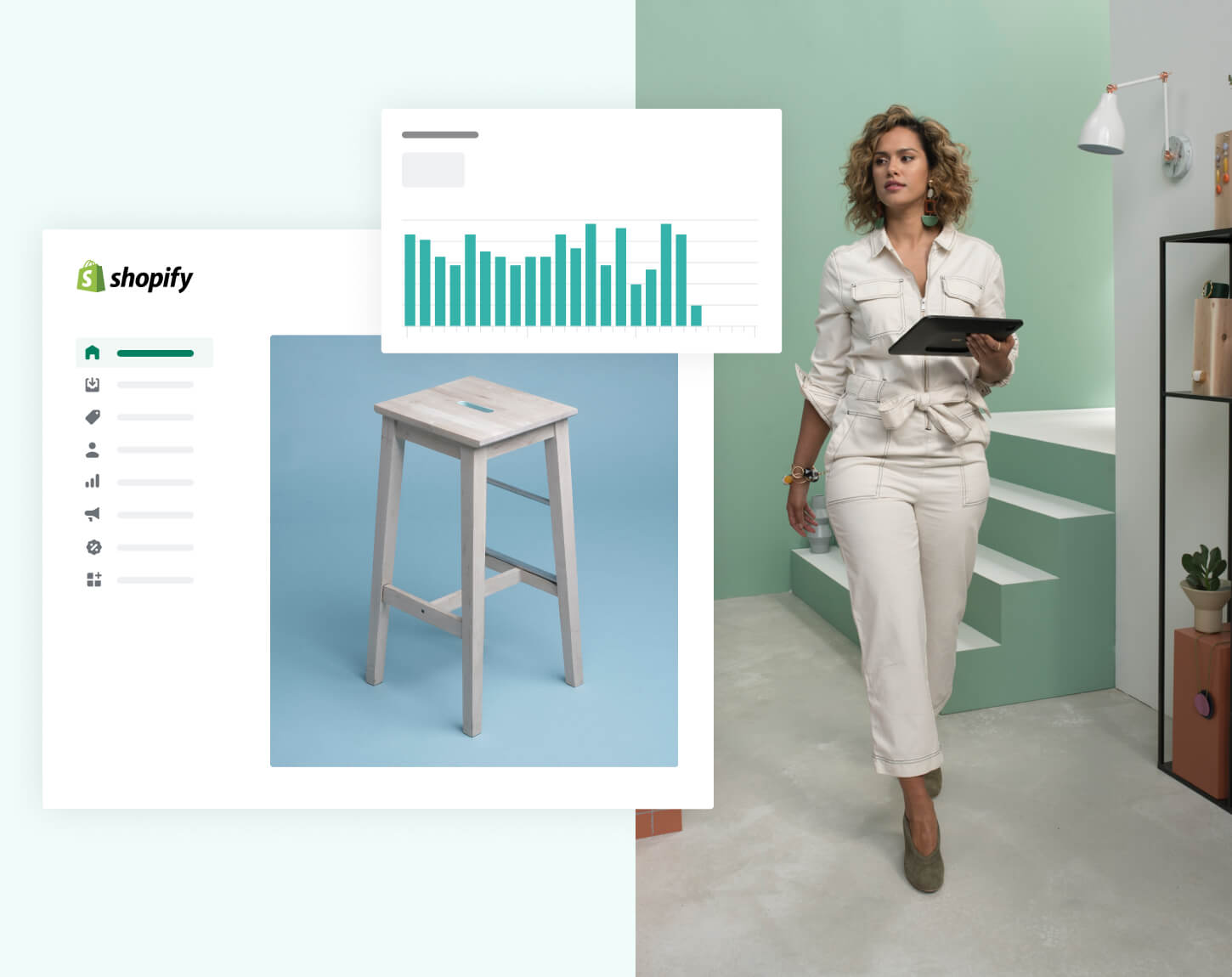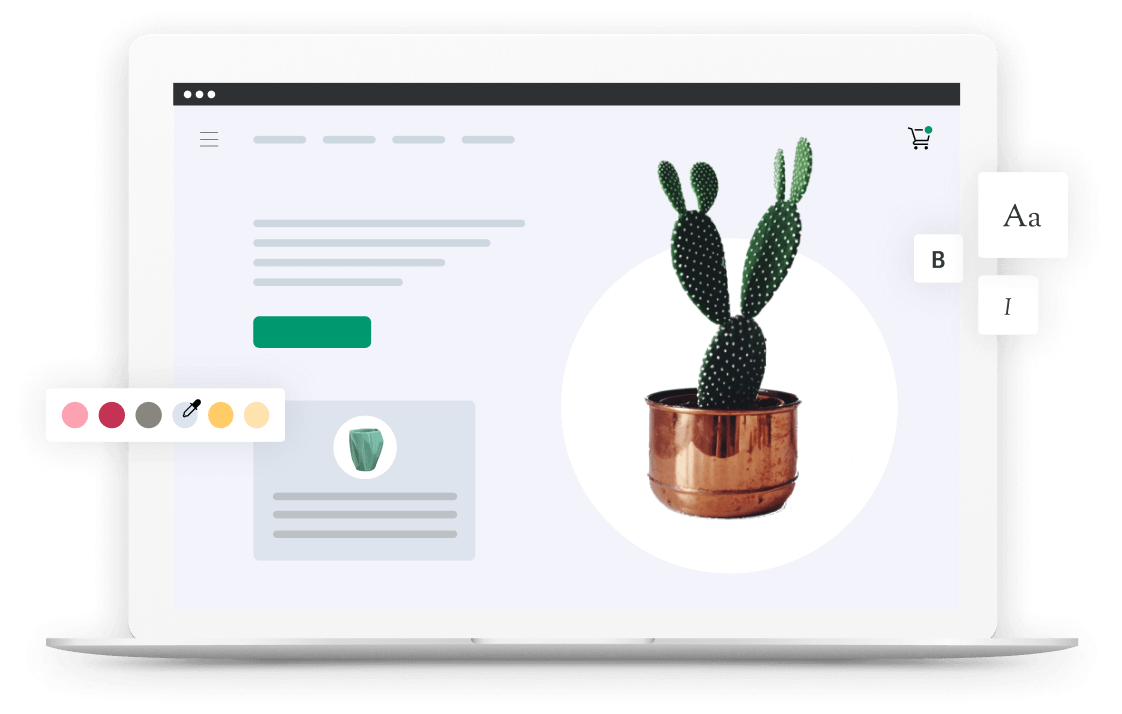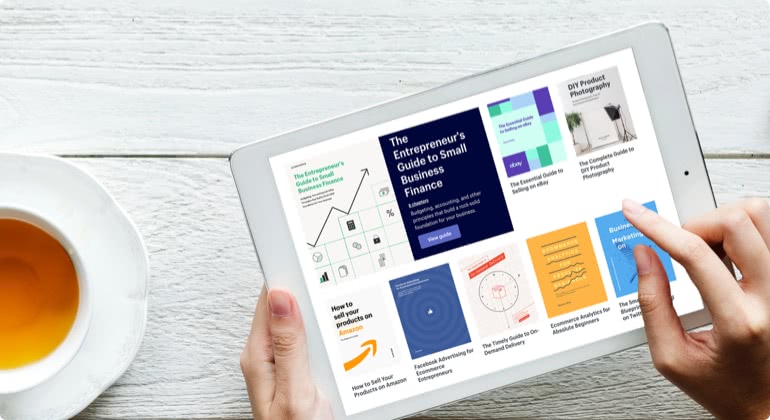BigCommerce vs. Salesforce vs. Shopify
BigCommerce or Salesforce or Shopify?
Shopify offers the embeddable Buy Button, over 6,000 apps, and lets you sell in person seamlessly.
You agree to receive Shopify marketing emails.

Why choose Shopify over BigCommerce and Salesforce
| Key features | BigCommerce | Salesforce | Shopify |
|---|---|---|---|
| Free trial | BigCommerce | Salesforce | Shopify |
| 24/7 support | BigCommerce | Salesforce | Shopify |
| Sell online and in-store | BigCommerce | Salesforce | Shopify |
| Business capital | BigCommerce | Salesforce | Shopify |
| Custom domain | BigCommerce | Salesforce | Shopify |
| SEO features | BigCommerce | Salesforce | Shopify |
| Hosting | BigCommerce | Salesforce | Shopify |
| Sell worldwide | BigCommerce | Salesforce | Shopify |
| Multi-currency support | BigCommerce | Salesforce | Shopify |
| Mobile-friendly | BigCommerce | Salesforce | Shopify |
| Fraud protection | BigCommerce | Salesforce | Shopify |
| Integrated checkout | BigCommerce | Salesforce | Shopify |
| Integrated fulfillment network | BigCommerce | Salesforce | Shopify |
| Email marketing tools | BigCommerce | Salesforce | Shopify |
| App Store | BigCommerce | Salesforce | Shopify |
| Mobile app for merchants | BigCommerce | Salesforce | Shopify |
Start selling with Shopify today
Try Shopify for free, and explore all the tools and services you need to start, run, and grow your business.

7 things Shopify can do over BigCommerce vs. Salesforce
Brand your store
BigCommerce and Salesforce both provide ecommerce tools for growing your business. However, you’d need to use third-party programs to create a brand presence with either platform. By comparison, Shopify offers free tools to help merchants build a brand image. These include a logo maker, storefront sign maker, video maker, business name generator, and a gift card template to increase brand recognition and loyalty.
Allow you to sell in person
When comparing platforms for offline commerce, you’ll learn that BigCommerce and Salesforce require merchants to connect a POS app to sell in person. Meanwhile, Shopify offers a robust POS solution out of the box that makes it seamless to sell in brick-and-mortar and pop-up locations. Eligible merchants in 17 countries around the globe can use Shopify POS to sell both online and offline while tracking their sales from one place.
Reach more shoppers
Instagram, Facebook, Walmart, Amazon, Google, TikTok, Pinterest—Shopify has a growing list of channel integrations and apps to help you extend the reach of your business. The growing size of the Shopify ecosystem compared to BigCommerce and Salesforce makes it an attractive choice for technology partners and developers to prioritize releasing upon.
Engage via email
Unlike BigCommerce, Shopify has a built-in email app that allows you to create, schedule, and track campaigns directly from your Shopify dashboard. With no experience needed, you’ll be able to launch campaigns quickly and feel like an expert from day one. Although Salesforce merchants can also run campaigns through the Salesforce Marketing Cloud, the setup process isn’t as easy as with Shopify Email.
Increase your store’s capabilities
If you’re looking for features that will make running an online store seamless, Shopify is the option to choose rather than BigCommerce and Salesforce. That’s because Shopify has over 6,000 apps (more than 3,000 of which are free) to expand the functionality of your ecommerce store. Options range from apps that help you find trending products to add-ons that help streamline customer service.
Sell on other websites
Salesforce currently doesn’t offer integrations for selling your products on other websites. Fortunately, BigCommerce and Shopify offer buy buttons that let you sell on other blogs and websites. BigCommerce merchants need to install a buy button application to take advantage, while Shopify just requires you to place an embed code on the site where you want to sell.
Recover abandoned carts cheaply
Shopify offers a beginner-friendly abandoned cart saver tool with all its plans. Unlike BigCommerce and Salesforce, it doesn’t require you to sign up for an advanced plan to access such a crucial feature.
We’ve been able to build something in 3 years that a lot of brands haven’t actually gotten to in 10 years.
Learn More About Shopify

Compare Shopify
See how Shopify compares to other platforms

Shopify Community
Learn from business owners on the Shopify forums

Shopify Help Center
Find answers to all your Shopify questions fast
Start selling with Shopify today
Try Shopify for free, and explore all the tools and services you need to start, run, and grow your business.
FAQs
What’s the difference between BigCommerce and Salesforce?
BigCommerce is designed to help retailers expand their presence online while Salesforce is a CRM company that also offers an ecommerce platform to help businesses reach online shoppers.
Which is better for ecommerce: BigCommerce or Salesforce?
Both platforms allow you to build an online store. But BigCommerce offers far more apps than Salesforce to help run your store. Shopify has various branding and marketing tools, and it also offers over 6,000 apps to support the needs of growing businesses. If you’re looking for a full range of features and ongoing support, Shopify is an excellent choice.
Which is easier: BigCommerce or Salesforce?
BigCommerce is easier to use for individuals who don’t have prior experience with ecommerce platforms. Shopify is the easiest of all platforms because it was built to empower the less tech-savvy to start an ecommerce store. Shopify’s no-code store builder and apps make it easy to create an online store. But HTML and CSS are accessible in case you’re skilled in programming and want more control over your store’s appearance.
Page last updated: January 24, 2022
What’s the best commerce platform for you?
Learn why thousands of businesses migrate to Shopify every year.
